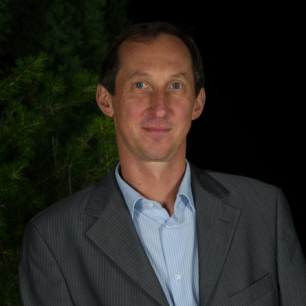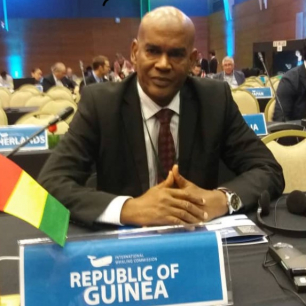IN THIS SECTION
The IWC commemorated its 75th anniversary on December 2nd 2021
A series of events have been held during this milestone year, including a relaunch of the IWC's scientific journal, a new online compendium of IWC-endorsed Protocols and Guidelines, and development of a new database that catalogues IWC recommendations, past and present.
Like many organisations, recent IWC events were forced to move online due to the Covid pandemic, but this did not stop the 88 member governments of the Commission raising a glass in recognition of this important anniversary at the conclusion of September's Virtual Special Meeting.
On December 2nd, the Commission again came together virtually to reflect on an evolutionary 75 year journey and today's challenges to management and conservation of whales. Commissioners holding a number of key roles in the IWC said a few words and the speeches made by the IWC Chair and Vice Chair are reproduced below.
Andrej Bibič - IWC Chair, Slovenia
75th Anniversary Speech by the Chair of the IWC
Welcome everyone. I appreciate that you have all taken time out of your busy schedules to come together and acknowledge the significant milestone of the IWC’s 75th anniversary. Next year, I hope that we will be in-person in Portoroz, but for now we come together virtually to raise a glass and commemorate 75 years of the IWC.
There are not many inter-governmental organisations that can claim to share this particular milestone. In terms of longevity, the IWC was formed just one year after the United Nations and the Food and Agriculture Organisation, two years before the International Maritime Organisation, 37 years before the Convention for Migratory Species and some 47 years before the Convention of Biological Diversity. Many other organisations have come and gone during this time.
In this context, simply enduring for 75 years could be viewed as something of an achievement. But that hardly tells the whole story – in several respects. Personally. I think there is also an evolutionary story here which I would like to reflect on here briefly.
Of course. the mandate of the IWC has not changed. We are charged – as we were in 1946 - with management of whaling and conservation of whale stocks. The moratorium on commercial whaling was introduced in 1986. Although special permit whaling was never regulated by the IWC, the Scientific Committee retained oversight and undertook assessment of the special permit whaling that was conducted until relatively recently. And of course, Aboriginal Subsistence Whaling remains core to the work programme of both the Scientific Committee and the Commission, with ground-breaking assessment and management tools and new procedures introduced to support this part of the IWC mandate.
I know other speakers will talk to science and ASW respectively today, but as I have already mentioned the work of the Scientific Committee, I think it is right that I pause here to highlight and pay tribute to their integral role from the earliest days of the Commission. Without their support and advice, the Commission would stand no chance of delivering on either aspect of its mandate.
So what has changed is not our mandate – what has changed - and in ways that those first signatories to our Convention could not have foreseen - is the nature of the threats to whale stocks.
- It is largely due to entanglement and ship strikes that North Atlantic right whale numbers continue to fall
- It is offshore oil and gas companies that we must work with to improve the chances of recovery for gray whales in the western North Pacific
- Bycatch is believed to have caused the extinction of the baiji and may well soon do the same for the vaquita.
Threats like these were simply not an issue when those first Commissioners gathered in Washington D.C. in 1946.
The range of man-made threats to cetaceans is broader and more complex than at any time in the last 75 years. The challenges involved in conserving whale stocks have changed immeasurably. In common with other organisations, I believe that the IWC has evolved – and is continually evolving – in order to meet these challenges.
I would like to shine a spotlight on two IWC initiatives that best demonstrate this.
In terms of resources, the Global Whale Entanglement Response Network had a humble birth in 2011. But what it had in its favour was consensus. Entanglement is an issue of welfare, conservation and human safety that all IWC members supported. A technical advisor was appointed, a panel was assembled, made up of the world’s leading experts in cetacean entanglement, best practice was shared, protocols were agreed, and a training programme was developed.
Ten years later, more than 1200 people from 30 countries have been taught safe and effective entanglement response. From Greenland to Kenya, from Peru to Oman, teams are now in place, not just to disentangle whales but to gather the data needed to try and stop future entanglements from happening in the first place. Such an initiative – or the need for it – could not have been envisaged in 1946 but it exists now because the IWC has evolved in response to the changing world around us.
The second initiative I would like to mention is very different, but it also demonstrates the way that the IWC has responded to our ever-changing environment. The Scientific Committee is a particular and undisputed asset of the Commission, and our Vice Chair is going to focus on this much more. But I would like to talk about one product of their work – and that is the sharing of their research, results and ideas.
In the 1960s, the IWC began to assemble and publish the papers that had been peer-reviewed by the Scientific Committee. This practice grew into the Journal for Cetacean Research and Management, a formal and substantial publication.
Today of course many people access publications on their phones and laptops. We don’t turn pages we scroll down screens. In this anniversary year our Journal has undergone a comprehensive update and now offers the screen-friendly layouts and searchability needed in the digital age. The Journal is now freely available to everyone and incorporates a series of improvements that make it more visible, accessible and easy to use.
This relaunch of the Journal is an entirely different initiative to entanglement response. But there are similarities. Primarily it is another example of the Commission evolving in response to our ever-changing environment. Like the entanglement response initiative, it has cost the Commission very little money, its success is down to the skill and commitment of those involved and the Journal has benefitted from Commission consensus.
Of course, there are still different views held at the IWC. We are not the only inter-governmental organisation in this position – and some of our differences are as difficult as they are long-standing. These differences must be acknowledged, and we must continue looking for solutions.
The point I want to make today, is that neither the IWC nor its evolution should be defined by them - because despite these differences we can point to some considerable and consensus successes over the last 75 years. I would like to thank everyone that has been involved in these successes.
I very much hope that we can learn from them and work towards consensus on other issues. None of us know what new challenges we will face as we move onwards but I am confident the IWC will continue to evolve towards its 100th anniversary.
75th Anniversary Speech by the Vice Chair of the IWC
I am honoured to join in this celebration today and provide a few brief remarks from my perspective as the IWC Vice-Chair. I will focus on science and the critically important role this has played throughout the history, and undoubtedly the future, of the Commission.
As a long-time IWC Commissioner for the Republic of Guinea, and as your Vice Chair and Bureau member over the past three years, I am keenly aware of the responsibilities we carry with our mandate under the Convention. Without the support of our scientists, it would not be possible for us to make informed decisions in ensuring healthy cetacean stocks and sustainable stewardship.
As noted by Dr Ray Gambell, the first and longest serving Executive Secretary of the Commission, the ‘Group of 3’ (later 4) leading scientists led the Scientific Committee in developing ground-breaking mathematical modelling techniques.
Scientists from around the world joined with these leaders to pool all the available information on whale stocks, their migrations, abundance, growth, reproduction and other characteristics needed to design and test these models. The modelling techniques pioneered by the Group of 3, then 4, garnered much attention from other marine scientists, and indeed is still emulated in fishery management in other fora.
This valuable work continues today. The Commission uses the guidance from the SC to evaluate and agree the harvest quotas for aboriginal subsistence whaling. The SC continues to share the latest information on stock structure, status and health, migration, reproduction. This has not changed and remains a core responsibility for both the scientists and the Commission.
What has changed is the number of scientists pooling their expertise today. The SC’s reputation for world-leading cetacean science has attracted more and more members. And they are welcome and needed. In order to conserve cetacean stocks today, their work must address a growing array of anthropogenic threats, such as underwater noise, bycatch and entanglement, ship strikes, and climate change.
More than 500 scientists from 5 continents attended the 2021 meeting of the IWC Scientific Committee. This group of scientists is not just larger, it is more inclusive. I am pleased to note that over the past few years, the participation of scientists from African countries has been increasing. A growing interest in collaborative work with scientists on the ground in Africa is reflected in the recent formation of an intersessional SC group working with ATLAFCO to develop a capacity building programme focused on at-sea surveys and abundance estimation.
This increased effort at inclusivity is also present in the Commission as a whole, with an enhanced drive to translate key documents such as the draft papers for the Working Group on Operational Effectiveness. Through the generosity of ATLAFCO and several member countries, it has been possible to ensure simultaneous translation at many workshops and all Bureau meetings. I should also note that the travel support offered through the Voluntary Assistance Fund, which is supported by a number of member countries, helps ensure that Group 1 and 2 countries are able to travel to meetings.
As the first West African Vice-Chair of the IWC, I welcome this inclusivity and the increased active engagement by all members of the IWC. Our mission is global and our challenges can only be addressed by garnering the data, expertise and ingenuity of all our members.
In closing, I thank you for this opportunity to address the IWC community as we head towards completing our first century of science and stewardship.
Amadou Televiel Diallo - IWC Vice-Chair, Guinea
Latest Tweets

International Whaling Commission
The Red House, 135 Station Road, Impington, Cambridgeshire, CB24 9NP
+44 (0) 1223 233 971
secretariat@iwc.int
Subscribe to the IWC Mailing List

